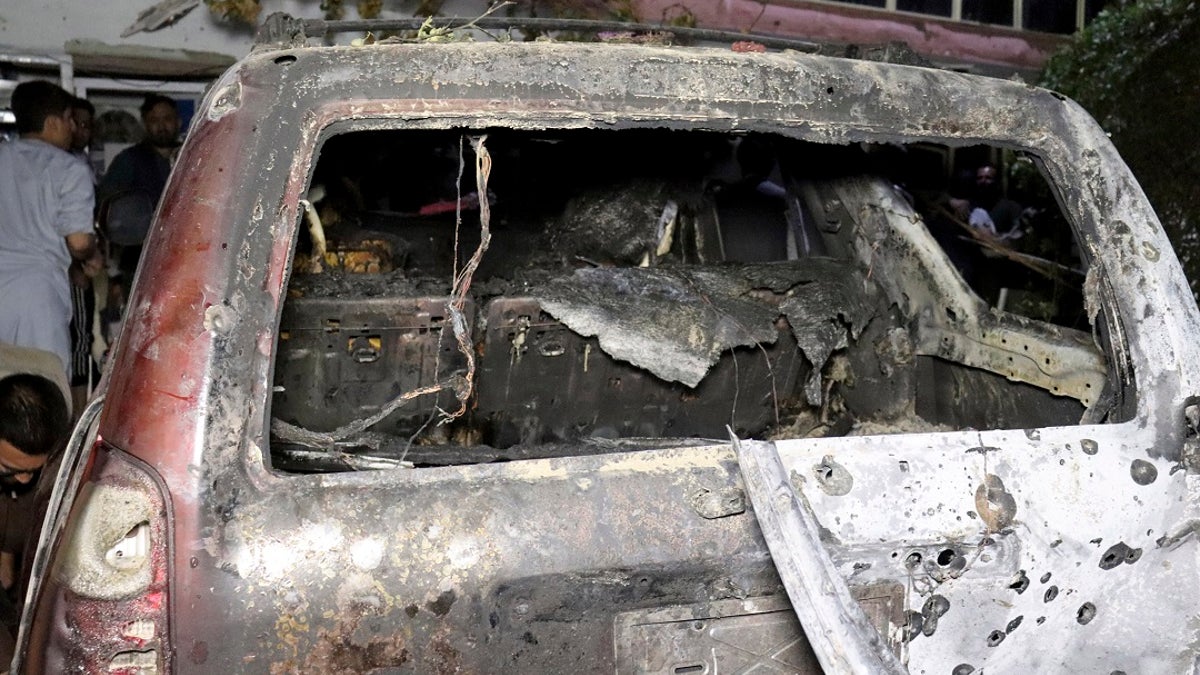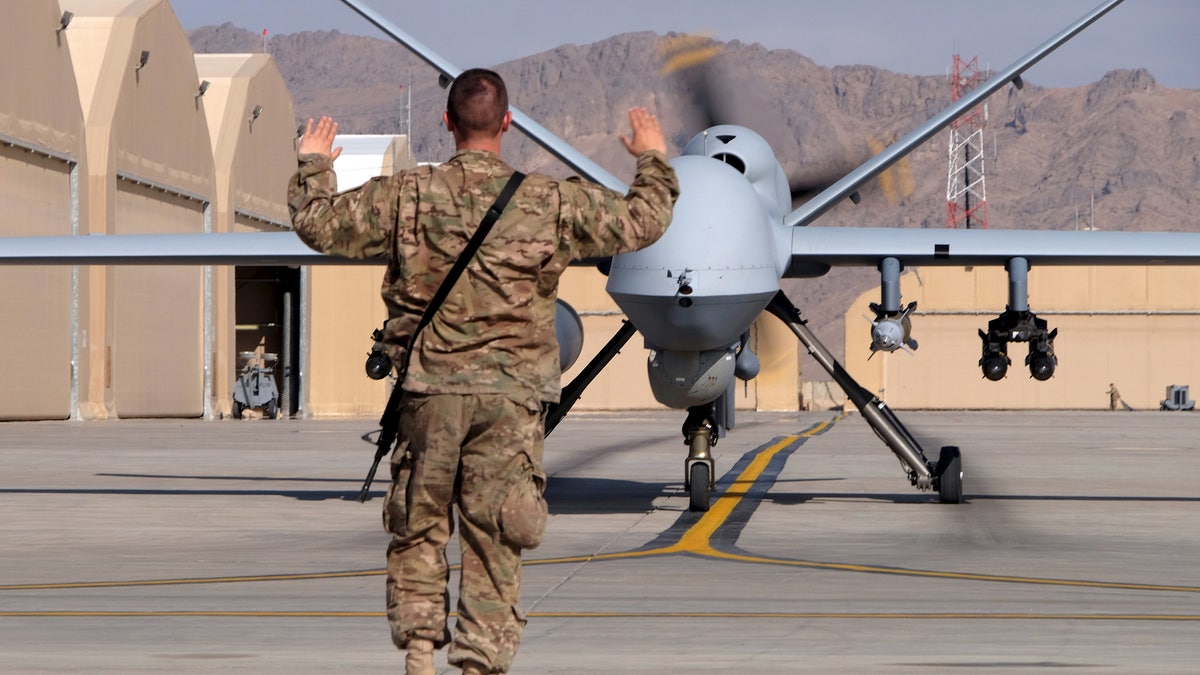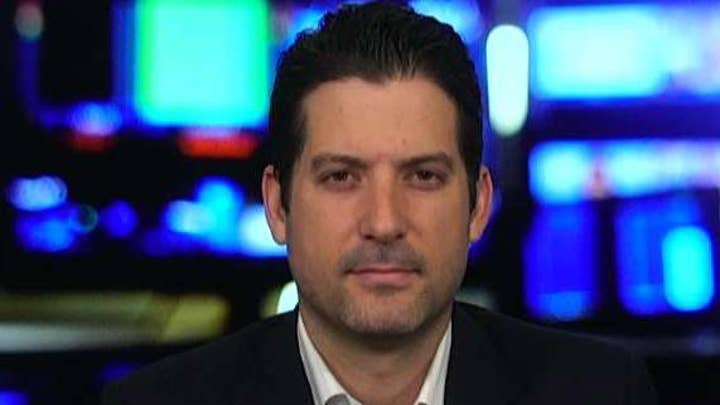Taliban previously offered to let the US secure Kabul: report
Retired U.S. Army General Don Bolduc joins 'The Next Revolution' to discuss the chaotic scene in Afghanistan
As Afghanistan readies for a future without the presence of U.S. troops, American military officials will most likely combat ISIS-K through the use of drone strikes, said drone expert Brett Velicovich.
One of the first strikes was carried out on Friday in response to a bombing that killed 13 U.S. service members a day earlier amid evacuations at Kabul's international airport. ISIS-K, an Islamic State affiliate in Afghanistan and Pakistan, claimed responsibility for the terror attack.
The Pentagon said the retaliatory strike hit a vehicle carrying an ISIS-K target who was believed to be planning future attacks.
The operation signals a new way of conducting warfare against terror groups, especially in remote areas where there isn't an American boots-on-the-ground presence, Velicovich, a former Army intelligence specialist and author of "Drone Warrior," told Fox News.

A U.S. drone strike destroyed a vehicle carrying "multiple suicide bombers" from Afghanistan's Islamic State affiliate on Sunday before they could attack the military evacuation at Kabul's international airport, American officials said. (AP Photo/Khwaja Tawfiq Sediqi)
"I think it definitely has to be the way we conduct strikes against them, unfortunately, because we don't have enough guys on the ground," he said. "I do think they're going to wage a campaign from the air going forward."
Drones, or unmanned aerial vehicles (UAVs), have revolutionized warfare with their ability to engage enemy targets, gather crucial surveillance and live video streams for troops on the ground, while reducing the numbers of troops needed in harm's way.
People on the ground are still needed to confirm or deny a lot of the information, Velicovich said.
It's not clear how potential drone strikes against ISIS-K will work in an Afghanistan governed by the Taliban.
"The question I keep asking myself is ‘Will we work with the Taliban to allow them to authorize us to conduct drone strikes in Afghanistan,’ which I think would be really sad," he said. "Will we work with them in a way that, reports out there indicated we worked with the Pakistani government to hunt al-Qaeda?"
He noted the drone campaign against al-Qaeda in Pakistan was successful because the group's senior leaders were concentrated in the region.
The concern would be the sharing of information with the Taliban, "who I will never consider anything other than the enemy," he added.

A U.S. airman guides an MQ-9 Reaper drone as it taxis to the runway at Kandahar Airfield, Afghanistan, in March. (REUTERS/Josh Smith/File)
"Would they potentially be giving information to the U.S. to strike a political enemy of theirs instead of an ISIS-K member?" he asked, while acknowledging drones are needed to keep terror groups in check. "It keeps them on the run and it keeps them always wondering who's after them and that's important for American's safety but it's going to be very challenging in this environment."
The strategy of relying on drone strikes has its drawbacks, as they require large amounts of intelligence and collection from the ground and air, allowing officials to confirm that the people being targeted are, in fact, the correct target. The intelligence details who the target is, the threat they pose and their wrongdoings.
"Without a cohesive strategy that encompasses, at a minimum, special operations units conducting tactical missions on the ground to support air operations from above, then the threat will continue for years to come," Velicovich said, adding that drones are not the end-all. "We cannot simply drone strike our way through the leadership of groups like ISIS-K and the Taliban and think they are no longer a threat."
Since drone technology has become widely available and less costly in recent years, terror groups like ISIS have developed their own weaponized drone programs in an effort to compete with established militaries.
ISIS fighters have outfitted drones purchased for cheap online with grenades, mortars and other explosives and dropped them on enemy forces. In 2017, the group released a video showing drones dropping munitions on its enemies from the air.
CLICK HERE TO GET THE FOX NEWS APP
When ISIS took back Mosul, Iraq, there were reports of multiple drone attacks on coalitions forces.
"They were so used to being hunted down that they figured out ways to use it against us," Velicovich said. "It's the same thing that will carry over to Afghanistan. They sort of learned how we did business and now they're using it against us, in a much smaller fashion."











































